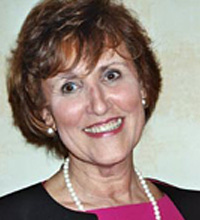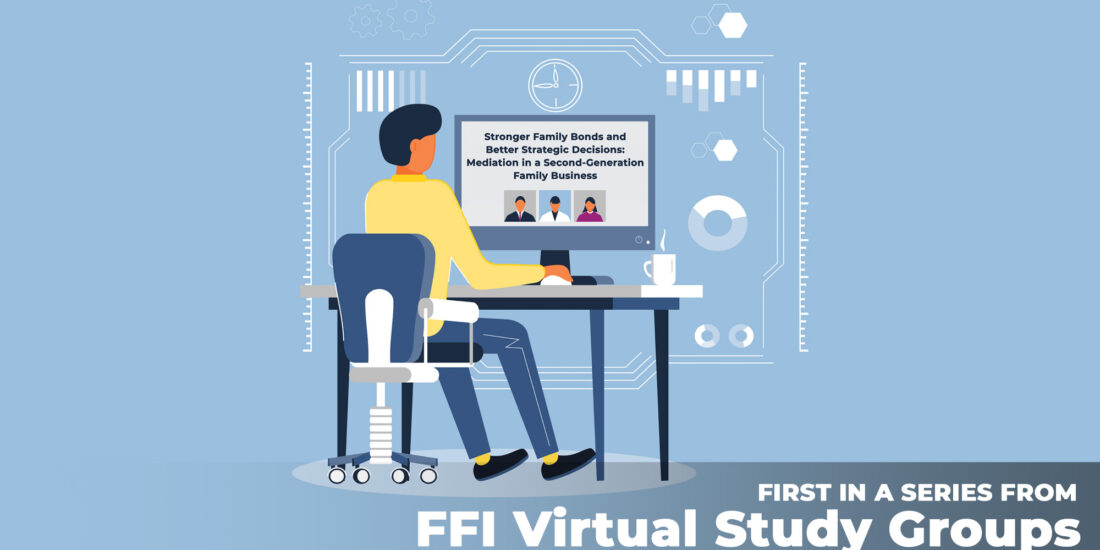The third of three cases on topics relevant to family enterprise advisors and their clients, “Marrying into the Family Business: Strategizing complex dynamics” by Judith Coche, provides insights and resources on this topic from a behavioral science perspective.
Yours in Practice,
The Practitioner
I smile now as I think of Kent and Celeste. When I met them four years ago they had run into complex territory after their fairy tale marriage. Born into poverty and chronic family crisis, Kent had been abandoned by his mother, who left home to pursue unattained stardom. Kent’s father remarried but had inadequate funds to provide tutoring for his son’s uneven intellectual abilities and deep shyness. Celeste cared not at all about Kent’s school smarts and found his shyness appealing. She was proud of his courage in making his way and convinced her family to trust his motives though they did not know him well.
Kent, afraid of being thought of as a freeloader after his marriage into wealth, decided to keep his job as manager of a foreign car repair dealership rather than join Celeste’s three brothers who were using their law, accounting and business degrees to build the next generation of the successful commercial real estate sales venture that had made their family name well-known locally. But Kent knew all too well that, while he yielded about $50,000 annually, the family offspring, including Celeste, were earning $100-$200,000 annually.
I met Kent and Celeste through a referral from the financial community. Treatment was to be funded from Celeste’s family, who loved Kent and thought he could benefit from psychotherapy. Kent and Celeste were relieved to have a safe place where they could work on issues that troubled them. Kent hated his low paying job but refused to create more dependence by working in the family business. The couple needed to agree on where to live and whether or when to start a family. Celeste wished Kent would simply accept that her family had the means and the desire to help them but Kent’s pride stopped him.
The couple first tackled where they would look for a new home, then took on when they might be ready to have a baby. Celeste, ready to begin yesterday, agreed to wait until Kent felt integrated into his fast moving new family. He often felt inferior to her siblings and their marriage partners, each with multiple homes and carefully planned financial futures. With Celeste, he turned to the couples work as a foundation for future lifelong marriage. He did not want to divorce. Ever.
I used a clinician’s bag of tools in working with Kent and Celeste:
- Standardized, objective psychological assessment tools provided thorough diagnosis of Kent’s personality and intelligence. I created an Optimal Life Assessment so that Kent could see his intellectual and interpersonal strengths more clearly.
- To treat the anxiety that had plagued Kent all his life, we opted for cognitive behavioral therapy, a form of therapy with substantial outcome research: we can teach clients to rethink how they handle moderate levels of anxiety with no medication.
- Basic couples communication skills in workbook form, drawn from experts including Dr. Carl Rogers, Dr. John Gottman, and the Harvard Business School’s negotiation skills, helped teach Celeste and Kent how to speak with one another about tough topics, heretofore unresolvable.
A recent new tool was the bonus that the couple enjoyed most. Because Kent needed clear statements and guidelines, positive psychology was used to help the couple diminish conflict and reap the joys of getting along. For most of his life Kent had no sense of control over his future, reliant on one job or another to bump himself forward. Resultant anxiety had created great unhappiness, lack of self-confidence, and impatience with new ideas. Drawing from research that indicates the value of helping employees concentrate on character strengths, optimism and resilience to reach their goals, we were able to focus Kent on his inherent strengths, and Celeste was encouraged to show enthusiasm when Kent handled himself well. Both partners were coached to remain polite and optimistic about their future even during disagreements. They decided to plan a new home before they decided to add a baby to their lives.
Little by little they developed the courage to calmly communicate their values to one another and to their family members. In helping them apply some of the positive psychology principles behind personal resilience, both partners were empowered to gain confidence in their own decisions about home and family.
To create agreement on how to handle money, we used Making Dollars into Sense, a workbook I designed with help from a CFP, CPA colleague. Celeste liked the structure of the exercises in the workbook and Kent liked how easy they were to understand, so they were soon able to discuss money differences at home for the first time since they had met. Although the couple had many differences of opinion on how to manage daily spending, they were able to agree on the ideal sprawling suburban home for their future family and agreed to accept the gift of the down payment from Celeste’s parents. Once Celeste became pregnant, they moved to their home.
At that point the distance to our offices increased substantially but less work was needed because this enthusiastic set of learners had internalized much of the positive psychology work. Because they have continued to work on their own, I have not seen Celeste and Kent for some time and have never met their new daughter, now one year old.
Knowing where to turn when psychological issues arise is a valuable asset for family business consultants. Human suffering often lurks behind impasses inherent in family enterprises. Marrying into a family might not be considered a challenge to overcome in most families, but when combined with disparity in wealth between the engaged partners, entering the new family can become a tricky issue. Often anxiety, depression, mood disorders, and other sources of human suffering are masked in conflicts about lifestyle. Because working with these issues is not part of the customary skills and training of many family business consultants, knowing when and where to refer to clinical experts can often resolve impasses, strategize complex family dynamics, and contribute to creating successful next generations.
Selected References:
Aaron Beck. M.D. Cognitive Therapy and the Emotional Disorders Paperback Meridian, 1979
Coche, Judith, Ph.D. Making Dollars into Sense Judith Coche, 2009
Coche, Judith, Ph.D. The Couples Communication Workbook, 5th edition Judith Coche, 2012
Fisher, Roger, William Ury and Bruce Patton. Getting to Yes: Negotiating Agreement Without Giving In Paperback. Penguin, 1991
Rogers, Carl, Ph.D. A Way of Being Houghton Mifflin, 1980
Seligman, Martin, Ph.D. Authentic Happiness: Using the New Positive Psychology to Realize Your Potential for Lasting Fulfillment Atria, 2004
About the contributor:
 Judith Coche, Ph.D., ABPP, is a licensed clinical psychologist and clinical professor in psychiatry at Perelman Medical School of the University of Pennsylvania, where she has developed the group therapy training program. Owner of The Coche Center, LLC, a practice in clinical psychology at Rittenhouse Square, Philadelphia and Stone Harbor, NJ, she can be reached at drjudithcoche@gmail.com.
Judith Coche, Ph.D., ABPP, is a licensed clinical psychologist and clinical professor in psychiatry at Perelman Medical School of the University of Pennsylvania, where she has developed the group therapy training program. Owner of The Coche Center, LLC, a practice in clinical psychology at Rittenhouse Square, Philadelphia and Stone Harbor, NJ, she can be reached at drjudithcoche@gmail.com.





